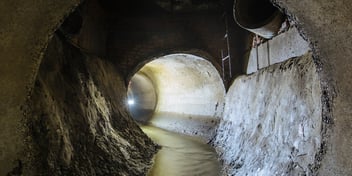How this utility is using a wastewater problem to create a high-value agricultural district
Western Water will establish a new irrigation district west of Melbourne in an attempt to address increased wastewater levels and provide a notoriously dry region with the resources it needs to flourish.
The irrigation network project, known as the Western Irrigation Network (WIN), is planned for the Parwan-Balliang area and has been developed to improve regional agricultural productivity while protecting local waterways and providing value for money for existing urban customers.
In a technical paper outlining the WIN submitted to Ozwater’20 Online, Western Water’s Warren Price wrote that, following detailed consultation, market testing and farm-level analysis, the utility is confident the new district is sustainable, given the success of the district depends on access to more water.
“Time invested in engaging with local producers has proved invaluable and transformed the development of the project – no longer just solving Western Water problems but addressing whole community needs by a co-design approach to find the best solution,” Price wrote.
Significant challenges
Price, who discussed the WIN at Ozwater’20 Online this week, said the motivation for the project was necessity, with Western Water servicing one of the fastest-growing regions of outer Melbourne.
“Urban growth is primarily located between the urban centres of Sunbury and Melton and the extremities of Melbourne. With 12 Precinct Structure Plans under development, this is one of the largest growth corridors in Australia,” he wrote.
“In absolute terms, the Western Water region will accommodate an additional 430,000 people by 2050, equating to just over 14,000 people per year.
“Water balance modelling has determined that, by July 2022, Western Water’s existing recycled water management strategies will be insufficient and so finding a new solution is paramount.”
Furthermore, the utility has existing commercial agreements with large farming enterprises, developing demand for high volumes of recycled water.
“The success of these partnerships encouraged Western Water to explore this approach in more detail to address the future challenge of managing excess recycled water volumes,” Price said.
“This has led to the development of WIN, founded on a strong partnership approach with the local community.”
Opportunity to expand
Parwan-Balliang is a dryland farming district located on the south western boundary of Western Water’s area of operations, 14 km to the south of Bacchus Marsh.
While water is certainly needed, Price said some consideration had to be made regarding sustainability.
“Utilising the excess recycled water for agricultural purposes presented as a highly attractive solution to managing Western Water’s challenge as well as building productivity in the local region,” he wrote.
“However, before landing on a final solution, a number of options were considered to determine what would be the most sustainable, long-term solution for the business, its customers and the region.”
Furthermore, Western Water needed to make careful decisions around environmental impacts, as well as commercial considerations.
“Western Water utilised the adaptive pathways approach to find the best solution to address the environmental challenge of recycled water management, and five Strategic Interventions were identified,” Price wrote.
These included aspects such as treatment for irrigation, disposal of recycled water to Port Phillip Bay, discharge to urban waterways to supplement environmental flows and substituting potable supplies to customers.
From these strategic interventions, various responses, either as standalone investments or combinations were generated and assessed.
“However, for WIN to succeed, there needed to be alignment with potential customers and stakeholders – their interest/support needed to match ours – and this required a major engagement approach, far beyond the traditional project engagement approach used by Western Water in past projects,” Price wrote.
“To better understand the community’s needs a dedicated project team was established to lead the engagement with the interested local producers. The team was supported by experts in agronomy, farm economics, irrigation, and water sales contracts.”
While there were plenty of commercial conditions to focus on, Price said one of the significant challenges was how to mediate winter storage requirements.
“One of the challenges of using reuse schemes as a wastewater management strategy is the winter storage requirements. The WIN project is no different, with the consistent daily wastewater volumes coming into our recycled water plants, winter storage requirements will increase in line with the increasing disparity in peak irrigation demand periods,” he wrote.
“To minimise winter storage requirements of the project, the commercial terms incentivising producers to take water consistently over each irrigation season and throughout the length of the contract period, were workshopped with the interested parties and added to the terms sheet.”
Security for the future
Price said that while construction approvals are in swing, the utility is looking forward to begin delivering recycled water to the WIN and expects the results will be positive.
“At the time of writing, the WIN project was in the detailed design phase to obtain construction approvals. In its initial year, WIN will deliver up to 2.4 GL of Class C recycled water to farms covering 3,500 hectares of land and has the potential to provide beneficial reuse of 18.3 GL of recycled water by 2050,” Price wrote.
“The WIN project is a significant departure from blueprint linear infrastructure planning of sewerage to meet sanitation and health needs, to a collaborative, community-minded, adaptive planning approach that is agile and will transform sewage waste into a resource to support Melbourne’s growth and enhance environmental outcomes.
“The WIN project will transform what would otherwise be a waste stream from a rapidly growing urban population and supply it as recycled water to a peri-urban region west of Melbourne.”
To learn more about Ozwater’20 online and to register, click here.

